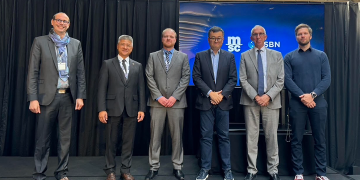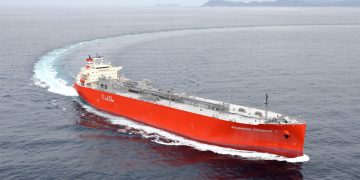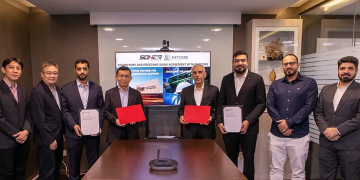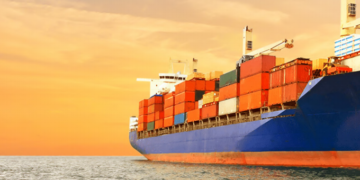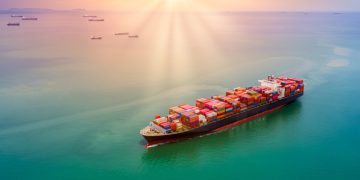In an exclusive interview to SAFETY4SEA, Kyle Hurst, the Director of Maritime Safety & Security Services at Iridium Communications, underscores the perils inherent in the maritime sphere, emphasizing the imperative of a robust onboard system that operates seamlessly irrespective of location, weather conditions or other challenges. Kyle draws attention to the persistent issue of piracy, particularly in specific regions, advocating for onshore interventions to address its fundamental causes.
Furthermore, Kyle refers to the importance of enhancing the Global Maritime Distress and Safety System (GMDSS) network. The recognition of Iridium GMDSS dates back to 2018, with operations initiated in 2020; however, as he explains, there are still some coastal states that have not implemented mandatory capabilities to enable free broadcasting of safety information
SAFETY4SEA: When it comes to tackling the challenges around the shipping sector, what are the core priorities in your agenda?
Kyle Hurst: Within our Safety and Security team, it is about rolling out the new technology to the industry so it can be used if needed by the average mariner. Iridium has spent many years and significant resources building a system that has capabilities well beyond the technology that has been used for the last 30 years. But our system can only help people that are on vessels that have installed Iridium GMDSS.
S4S: Which is now considered as the hottest piracy spot? Have you observed any patterns during the months that the piracy incidents are increasing? What is your feedback?
K.H.: Unfortunately, piracy is still a major issue in many areas and recently we have seen some really dangerous incidents around West Africa. We have been working with shipping companies to develop new capabilities to improve the protection that can be available to crews during an attack. This has been very positive and we are looking forward to continuing to improve solutions, but there is still so much to do. I think that solving the piracy issue will require ongoing work onboard ships, but the main work will need to be done onshore. Fixing the root cause of piracy will need to make it unpalatable for the pirates themselves and the people who back them.
S4S: How do GMDSS communications need to get improved? How do you assist ship operators in enhancing maritime security onboard?
K.H.: There are so many ways that improvements can be made, but with issues like cost concerns, crew training and the pace of the regulatory process, change will always be slow. Some improvements are available today on the Iridium system relative to the incumbent provider, the biggest being safety voice. In general, we work everyday to try to move things forward. It can be surprising how much resistance exists to improving safety technology, and it’s hard to believe, but although Iridium GMDSS was recognised in 2018 and has been operational since 2020, there are still some coastal states that have not implemented mandatory capabilities to enable free broadcasting of safety information. And if you look at the IHO webcast for Iridium SafetyCast (https://iho.int/en/iridium-safetycast-implementation-status) you can see which countries haven’t declared operational service..
S4S: Are the current anti-piracy measures adequate or should we look forward to supplementary solutions? What can the ships do to better protect their crews, besides depending on patrols?
K.H.: There is still a lot that can be done to remove the potential benefit for pirates and that is what our recent work has focused on. Obviously, it is a sensitive subject so I cannot provide details, but the improvements we are working on are designed to greatly reduce the probability that the pirates will have a successful outcome. Once they realise this, piracy becomes bad business.
S4S: Why next gen ship citadel piracy defenses are considered as mariners’ best means for communication in the immediate face of attacks? How can these work effectively in such cases?
K.H.: A key method for fixing piracy is organisations like the UN and global leaders dealing with socioeconomic issues in the countries and areas that have an issue with piracy. Unfortunately, the average mariner doesn’t have time to wait for that to happen, so building systems onboard the vessel to protect the crew is the most direct and effective method. The citadel keeps the crew away from the pirates and the communication systems ensure that authorities have sufficient information to take clear action to rescue the crew.
S4S: What is your wish list for the industry and/or regulators and all parties involved towards maritime security?
K.H.: First, the IMO has a focus on security, but it should be reinforced and even more attention should be given to it as a primary concern. Second, the industry would benefit from a general improvement in required security standards and best practices. Third, would be that there’s also an opportunity for more regional cooperation on response assets and timings.
S4S: If you could change one thing from your perspective, what would it be that thing and why?
K.H.: Appoint new countries/providers of Maritime Safety Information for those areas where they are not providing Maritime Safety Information to all GMDSS providers. Companies like Iridium can create the best systems in the world to try to improve maritime safety, but if they are not supported by flag, port and coastal states then these systems can be ineffective.
S4S: What is your message to industry stakeholders with regards to connectivity onboard?
K.H.: There is a lot of buzz in the industry currently about new communications technologies, but some key aspects are important but either misunderstood or forgotten. These are:
- Cost
- Reliability
- Coverage
- Capability
Some new systems are offering very competitive pricing, and their capability in relation to data speeds are a real revolution. But coverage is very important, and reliability is key. The maritime environment can be dangerous so always having a system onboard that works no matter where you are and, in any weather, should be paramount.
The views presented hereabove are only those of the author and do not necessarily reflect those of SAFETY4SEA and are for information sharing and discussion purposes discussion purposes only.







